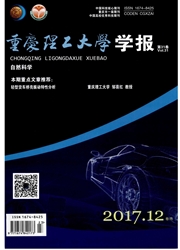

 中文摘要:
中文摘要:
蒙提·霍尔问题涉及如何界定决策中的随机事件、如何刻画决策者的认知和概率计算。通过与相关抽彩问题的比较和认知计算得出的结论是:标准概率论在蒙提·霍尔问题的概率计算中仍然有效,但采用朴素条件化概率忽略了问题情境中的认知因素;改变选择的决策在原问题中是期望效用最大化意义上合理的,但其推理论证存在逻辑循环,关于概率转移的解释是错误的。蒙提·霍尔问题表明不确定性决策中认知推理和概率计算之间不协调。这个悖论说明决策合理性与相应认知推理的逻辑可证性不等价,差异源于概率计算和不确定性推理依赖认知编码,这意味着随机性的知识是不可证的。
 英文摘要:
英文摘要:
Monte Hall Problem involves in how to identify random events in decision,how to show the cognitive decision makers and the probability computation. Comparing with the raffle issues related and cognitive computing,we concluded that standard probability is still valid in the calculation of probability in Monty Hall problem,but using simple conditional probability ignores the cognitive factors in the problem situation; In the original problem,the Changing selection decision is reasonably in the expected utility maximization sense,but his reasoning and argument exists logic loop,and the explanation about the transfer probability is wrong. Analysis shows that there is incoherence between cognitive reasoning and probability computation in Monty Hall problem. This paradox illustrates that decision rationality and corresponding cognitive reasoning logic are inequitable,and the differences is that the result of probability calculation and uncertainty reasoning depends on cognitive encoding,which implies improvability of knowledge about randomness.
 同期刊论文项目
同期刊论文项目
 同项目期刊论文
同项目期刊论文
 期刊信息
期刊信息
